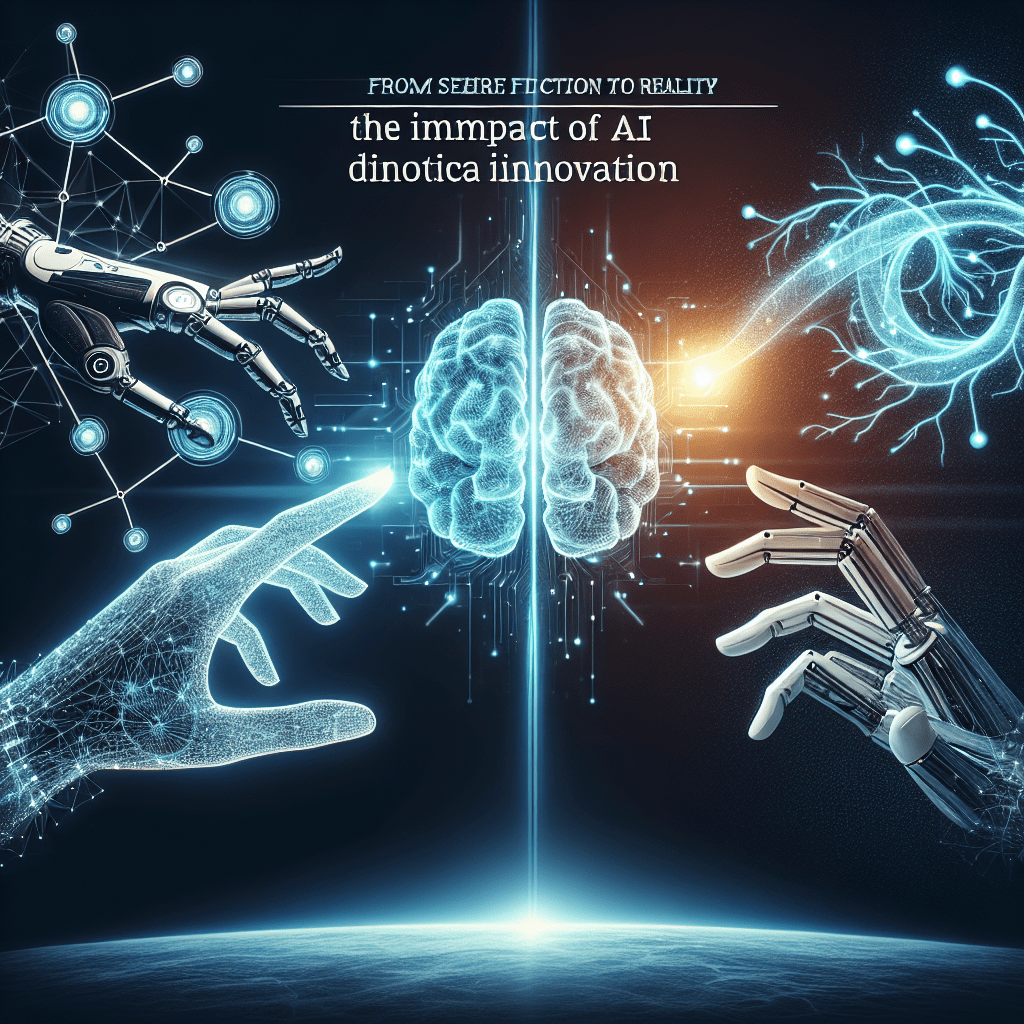AI (Artificial Intelligence) innovation has quickly shifted from being something out of a science fiction novel to a reality that is shaping our world in significant ways. The impact of AI innovation is vast and has the potential to revolutionize industries, improve efficiency, and change the way we live and work. In this article, we will explore the journey of AI from science fiction to reality and the implications it has for society.
The Evolution of AI
AI has been a concept that has fascinated scientists, writers, and filmmakers for decades. It was first introduced as a concept in the 1950s, with the development of early computer programs that could mimic human intelligence. Over the years, advancements in technology and computing power have allowed for the creation of more sophisticated AI systems that can perform complex tasks and learn from data.
One of the major milestones in the development of AI was the creation of neural networks, which are systems that can mimic the way the human brain processes information. This breakthrough has allowed for the development of AI systems that can recognize patterns, make predictions, and even learn from experience.
The Impact of AI Innovation
The impact of AI innovation is already being felt across industries and sectors. In healthcare, AI is being used to analyze medical images, predict patient outcomes, and even assist in surgery. In finance, AI is being used to detect fraud, optimize investment strategies, and personalize customer experiences. In transportation, AI is being used to improve traffic flow, optimize routes, and even develop self-driving cars.
AI innovation is also transforming the way we live and work. Virtual assistants like Siri and Alexa have become a part of our everyday lives, helping us with tasks like scheduling appointments, playing music, and answering questions. AI-powered chatbots are revolutionizing customer service, allowing businesses to provide 24/7 support to their customers. And predictive analytics tools are helping companies make better decisions and optimize their operations.
The Ethical Implications of AI
While AI innovation holds great promise, it also raises important ethical questions. One of the biggest concerns is the potential for AI to take over human jobs, leading to mass unemployment and economic instability. There are also concerns about bias in AI algorithms, which can lead to discriminatory outcomes in areas like hiring, lending, and criminal justice.
Another ethical issue is the impact of AI on privacy and surveillance. As AI systems become more sophisticated, they have the ability to collect and analyze vast amounts of data about individuals, raising concerns about the misuse of this information and the erosion of privacy rights.
Conclusion
AI innovation has come a long way from its origins in science fiction to become a reality that is reshaping our world. The potential for AI to improve efficiency, revolutionize industries, and enhance our quality of life is immense. However, the ethical implications of AI must be carefully considered to ensure that it benefits society as a whole. As we continue to develop and deploy AI technologies, it is essential that we prioritize transparency, accountability, and fairness to mitigate the risks and maximize the benefits of AI innovation.
FAQs
What is AI?
AI stands for Artificial Intelligence, which is the simulation of human intelligence processes by machines, especially computer systems.
How is AI being used in healthcare?
AI is being used in healthcare to analyze medical images, predict patient outcomes, and even assist in surgery.
What are the ethical implications of AI?
The ethical implications of AI include concerns about job displacement, bias in algorithms, and privacy rights.
Quotes
“The question of whether a computer can think is no more interesting than the question of whether a submarine can swim.” – Edsger W. Dijkstra
Tell me about a time when you had to overcome a major obstacle in your life.


